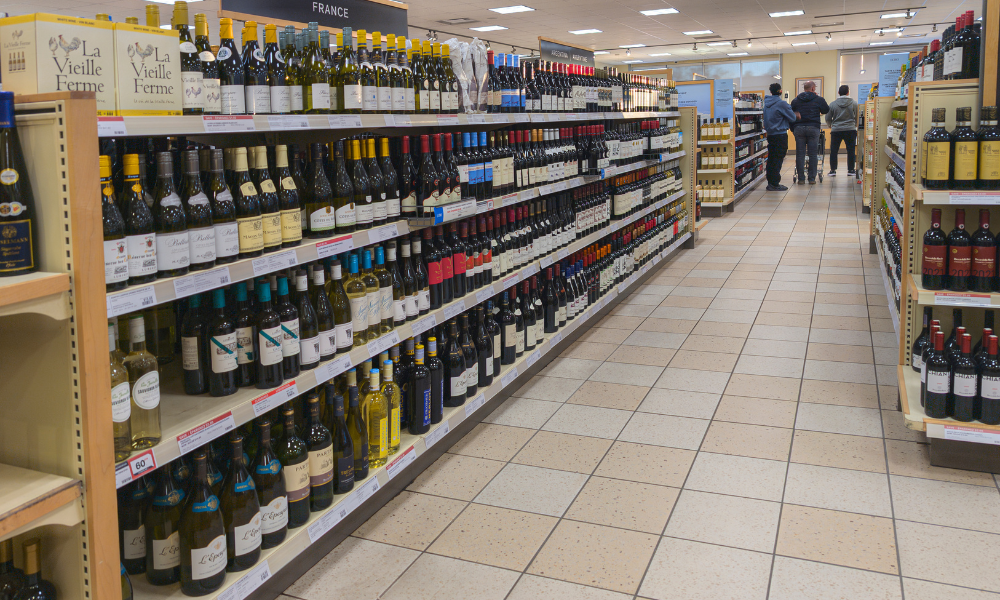With new rules for Ontario, employers will want to update OHS measures

Exclusive to Canadian HR Reporter from Rudner Law.
If you’re from Ontario and you’ve ever been to Montreal, you might have bought beer at a depanneur (corner store) and then returned home to lament the fact that you cannot do the same there.
Thankfully, this is now a thing of the past, as Ontario recently allowed retailers such as corner stores and grocery stores to sell alcohol. Ontarians now have thousands of additional retailers for alcohol, with longer hours than the Liquor Control Board of Ontario (LCBO) outlets. Eligible retailers are also rejoicing, as alcohol can provide an additional and significant revenue stream.
But it’s not all sunshine and margaritas - in selling alcohol, employers are exposing their employees to potential health and safety risks. In turn, employers have an obligation to address these risks, which presents a cost and source of liability they may not have previously considered.
Theft and violent crime with alcohol sales
Recently, shoplifting and armed robbery have plagued the LCBO. Locations across Ontario have been a prime target for thieves, who are often armed with knives or even firearms. Some reports have linked the problem to organized crime, as it is believed that a substantial portion of alcohol theft is carried out by criminal organizations who resell it on the secondary market.
In response to this issue, the LCBO has implemented extensive training, which educates its employees about the safety risks, and instructs them as to which procedures to follow. LCBO training includes de-escalation procedures and a no confrontation policy - employees are not to intervene to try and stop a thief.
Despite measures in place, theft is a common occurrence and an everyday concern for LCBO employees, who have reported that some stores see multiple thefts a day. Thieves often threaten staff with weapons, and security guards have been hospitalized after being attacked.
Employers operating convenience stores and other new alcohol retailers must understand that their businesses and staff are exposed to the same kinds of risks.
Employer safety obligations
Under the Occupational Health and Safety Act (OHSA), employers have an obligation to make all reasonable efforts to provide a safe workplace. OHSA stipulates that employers shall take every precaution reasonable in the circumstances to ensure the protection of their workers.
How does this apply to employers now selling alcohol?
As businesses become potential targets for alcohol theft, workers are exposed to new health and safety risks, similar to the ones LCBO staff face. Employers are responsible for addressing these health and safety risks by taking every reasonable measure to provide a safe workplace. Specific measures will depend on the individual characteristics of the store, but generally, updating health and safety policies and procedures will be necessary.
Additional measures, such as implementing or enhancing security and providing additional training, may also be required. For example, employers may need to:
- Hire security guards, or increase security staff
- Train staff on safety procedures and implement protocols on how to deal with theft (i.e.: a no confrontation policy and de-escalation training if a thief engages an employee)
- Provide safety features such as panels or barriers
- Install video surveillance
- A combination of the above
Failure to take appropriate measures is a violation of an employer’s obligations under OHSA, and is an easy way to be on the hook for damages in connection to an unsafe workplace.
Costs of theft and employees
Employers must also be aware that the costs of theft cannot be passed down to their employees. The Employment Standards Act, 2000 (ESA) prohibits employers from deducting losses from employees’ wages on account of theft or loss of property, if someone other than the employee had access to that property. So customers, or thieves, leaving without paying for goods do not give employers a license to pass the cost onto their employees.
While the ESA allows employees to agree to have their employer make certain deductions, agreements for deductions on account of theft or loss of property are unlawful. These provisions also apply to “dine and dash” scenarios in restaurants. Thus, the best way to minimize exposure to the costs of theft is to implement reasonable measures to keep workers safe and provide appropriate security counter-measures.
While eligible retailers welcome the expansion of alcohol sales, they need to be aware of the accompanying risks and costs. This new revenue stream can impose additional duties on employers stemming from their safety obligations.
Ignoring these obligations and failing to provide appropriate safety and security not only makes theft easier, but also exposes employers to liability for breaching their obligations under OHSA, under their employment contracts, and at common law.
David Gelles is an associate lawyer at Rudner Law in Toronto. He can be reached at (416) 864-8500 or [email protected].




